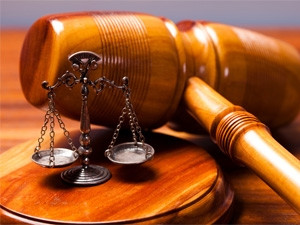
The Supreme Court of Appeal (SCA) has ruled the use of a signal jamming device in Parliament during the 2015 State of the Nation Address (SONA) was unlawful. The court also ruled Parliament's policy to not broadcast "disruptions" in the chamber is unconstitutional and unlawful.
"The rules and policy adopted by Parliament governing the broadcast of disorder in the Parliamentary Chamber violate the public's right to an open Parliament and are unconstitutional and unlawful," the judgement reads.
"The disruption of the cellphone signal in Parliament during the State of the Nation address was in contravention of the Powers, Privileges and Immunities of Parliament and Provincial Legislatures Act 4 of 2004 and was unlawful."
The signal jamming incident made headlines in February 2015 after members of Parliament raised a point of order because no mobile signals were available in the house when president Jacob Zuma was set to give his State of the Nation Address. The proceedings were delayed by about 15 minutes before the cellphone signal was restored in the house.
There was an outcry that the signal jamming denied millions of South Africans the right to know what happens in Parliament and to participate in a democratic society, as journalists could not use their mobile devices to disseminate information.
Another issue raised was that viewers of the parliamentary broadcast were deprived of the right to see visuals of EFF MPs being ejected from the chamber, as the camera was focused on the speaker of Parliament and the chairperson of the National Council of Provinces.
The case was on appeal from the Cape Town High Court. It was brought by Primedia Broadcasting, the South African National Editors' Forum, the Right2Know Campaign (R2K) and the Open Democracy Advice Centre, which all felt it necessary to challenge the action by Parliament and the minister of state security, saying the actions "undermined South Africa's constitutional democracy and the right to free media".
A "mistake"
After the incident, minister of state security David Mahlobo said the loss of cellular signal in Parliament was an "operational error" and was "highly regretted". According to the court judgement, the State Security Agency was seeking to guard against the treat of "hidden explosive devices in the precincts of Parliament that could be activated by a radio signal or a cellphone, including devices that might be carried on remote-controlled drones".
The agency admitted it had used a signal disrupting device to ensure there were no threats before the president and his entourage entered the chamber, which had already been "swept" for devices. However, a technician had "forgotten to switch the device off" ahead of the address by the president. The minister said "the entire incident had been a mistake that would not be repeated".
However, the SCA says the use of a jamming device without the permission of the speaker of the house and the chairperson of the National Council of Provinces was unlawful.
Disorder on the floor
The SCA also ruled Parliament's policy on not broadcasting "disorder on the floor of the house" is unconstitutional and unlawful in that it violates the right to an open Parliament.
"Democracy in South Africa is predicated on open government in which all citizens participate. The Constitution thus affords all South Africans the right to see and hear what happens in Parliament," the court judgement reads.
"This is a hugely significant victory for media freedom and the right of journalists to do their jobs unhindered. The unanimous judgement is also a victory for our hard-fought democracy and for our country's Constitution. This ruling should galvanise all journalists to continue fighting for the rights to our profession, as entrenched in the Constitution," says Katy Katopodis, Primedia Broadcasting group editor in chief.
"We welcome this judgement as a vindication of the right for ordinary South Africans to have a Parliament that is open and transparent. [The] judgement is a resounding endorsement of the principles of openness and transparency which Parliament must strive to uphold and which the SSA and other security structures must respect," R2K says in a statement.
Share